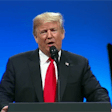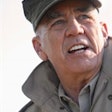Author Joseph Wambaugh recently shared some thoughts with POLICE magazine in an interview published in the October 2007 issue. Here, he reveals the inspiration for Spermwhale Whalen, and gives his thoughts about the controversial show, "The Shield."
POLICE: Your affection for the Spermwhale Whalens, Cruz Segovias, and the Oracles of law enforcement is obvious. Are there any mentoring sergeants or training officers that resonated with you?
WAMBAUGH: I think there are composites of different guys. Well, there was one guy that I supervised when I was a rookie sergeant at Newton Street. I took portions of his unbelievable life and I grafted it onto the character that became Spermwhale Whalen in "The Choirboys." Some people who read "The Choirboys" asked, "Isn't this guy over the top? I mean he's an Air Force Reserve pilot, he flies combat missions to Vietnam, I mean c'mon, while he's still a full-time cop at Wilshire Division."
While at Newton Street, I supervised this guy who would string his nine days a month together—the captain allowed this—so he would work 21 days straight and take nine days off together. And then he'd go up to Edwards Air Force Base and he'd fly a huge Globemaster airplane; you could put a tank in the damn thing. He'd fly the Globemaster to Vietnam on combat pay and then come back to Newton Street at the end of the nine days and go to work. He was just a basic police officer rank; he never did make sergeant. He wasn't the type to make sergeant, yet he was a major in the Air Force Reserve. He'd flown in WWII, he flew in Korea, and while he was a cop he flew in Vietnam.
So I grafted all that onto the character of Spermwhale and he'd say stuff at roll call when guys came back from days off and cops would say, "Where'd you go? I took the family to Disneyland or I went to the Colorado River," that sort of thing, and they'd say to him, "Where did you go?" "Oh, Danang is all." People ask me, "Did he have a funny name like Spermwhale Whalen?" I said, "Oh no, he had a very ordinary name. It was Roxie Rupe." When he died, his wife wrote me a letter and said Roxie was always proud to tell everyone that he was Spermwhale Whalen.
I defended him at a trial board. Most of the guys at Newton Street thought I was an easy sergeant. I just wanted to be a detective, so I could get through my patrol probation as a sergeant and then get a job as a detective. So I would never burn anybody and I was pretty easy. So a couple of guys asked me to defend them at a trial board when they got in trouble. This was a famous story at the time. It went all over the CHP teletype system that they had at that time. One night, Roxie Rupe was one his way home from Newton Street and he stopped at one of the local bars and had eight or 10. He was on a freeway and some guy almost sideswipes him—at least that's the way Roxie told it to me. They start flipping each other off and a little road rage ensues.
They pull off the freeway at the center divider, and both jump out of the car. Once again, this is Roxie's story to me, which I presented to the trial board. The guy was advancing on him in a hostile manner and Roxie just let one fly and clipped the guy right in the button, knocked the guy over the center divider and hung him there. The guy was out cold with one punch, out cold. Somebody driving by saw this ruckus going on, pulled off, made a phone call on a public phone, CHP was on it so fast, Roxie said he couldn't believe it. Of course, Roxie was so drunk that time didn't have the same sequential meaning to him.
Two CHP units pull up, both one-man cars. By then the guy over the center barrier is reviving. One Chippie is talking to him, one takes Roxie and is talking to him. The Chippie that is talking to Roxie goes over to the other one—by now the two fighters were back in their cars—and he said, "You ain't gonna believe this, my guy's an LAPD cop." The other Chippie says, "So is mine."
They told this from the Mexican border all the way to Oregon; this was on the teletype the next day everyone is talking about it. The other guy happened to be a patrol sergeant; he was drunk, too. So at the trial board, the whole defense was that the other guy was a sergeant and he should have known better. The trial board could hardly keep a straight face as I was presenting the evidence.
Roxie looked like Popeye; he had big forearms. He's sitting there trying to look innocent at the trial board. It was hysterical. I think I got him off with five days or something like that and the other guy got 30 days.
POLICE: Your cops were flawed human beings, sometimes deeply so, but they do by and large operate by their own code. What do you think about the fact that pretty much most of today's cop cultural reference points are a bunch of amoral, nihilistic, hedonistic individuals?
WAMBAUGH: You're talking about "The Shield," probably. When I first saw The "Shield," I thought, well, it's appropriate that they place the badge on the right side of the chest. At least in the early episodes of "The Shield" that I saw—presumably they're still doing it—they wore the badge on the right unlike any other law enforcement agency on the planet. And I thought that was the producer saying, "Hey, this is our world. This is our police department. We're not saying this is authentic." I took that as a symbolic statement and I thought, OK, all right, that's yours.
I prefer to watch police stories that are authentic, that do have their basis in truth and fact and authenticity. So I don't think I'm going to be liking this show very much. And sure enough, as I watch "The Shield," it takes place in a generic police force unnamed somewhere in Southern California where not only is there no criminal law that is sanctioning these cops and reigning them in, there's no civil law.
Apparently, there are no lawyers in a community that is being policed by the cops in "The Shield."
As you know, in real life we've got lawyers up our ass. They're like Starbucks cups; they're littering the environment, they're everywhere. So the whole basis of the show is impossible in that respect. There's no civil law in addition to criminal law, so these cops can do anything they want. Nobody ever sues them, sues the department.
But I thought when they put the badge on the right side, they're sort of flipping the bird, saying, "Hey, this is our police force. We'll do what we want."











